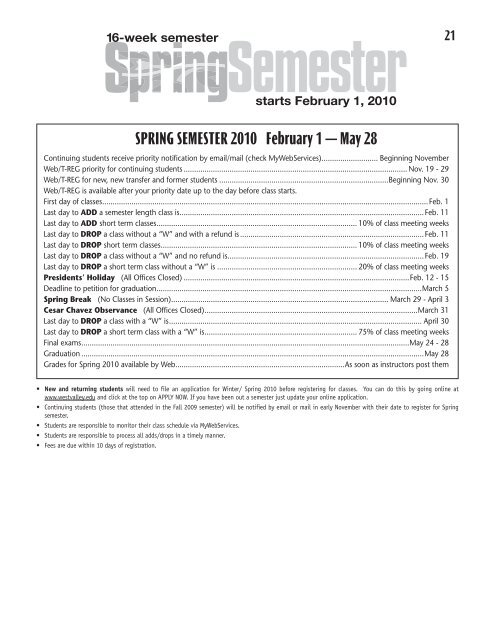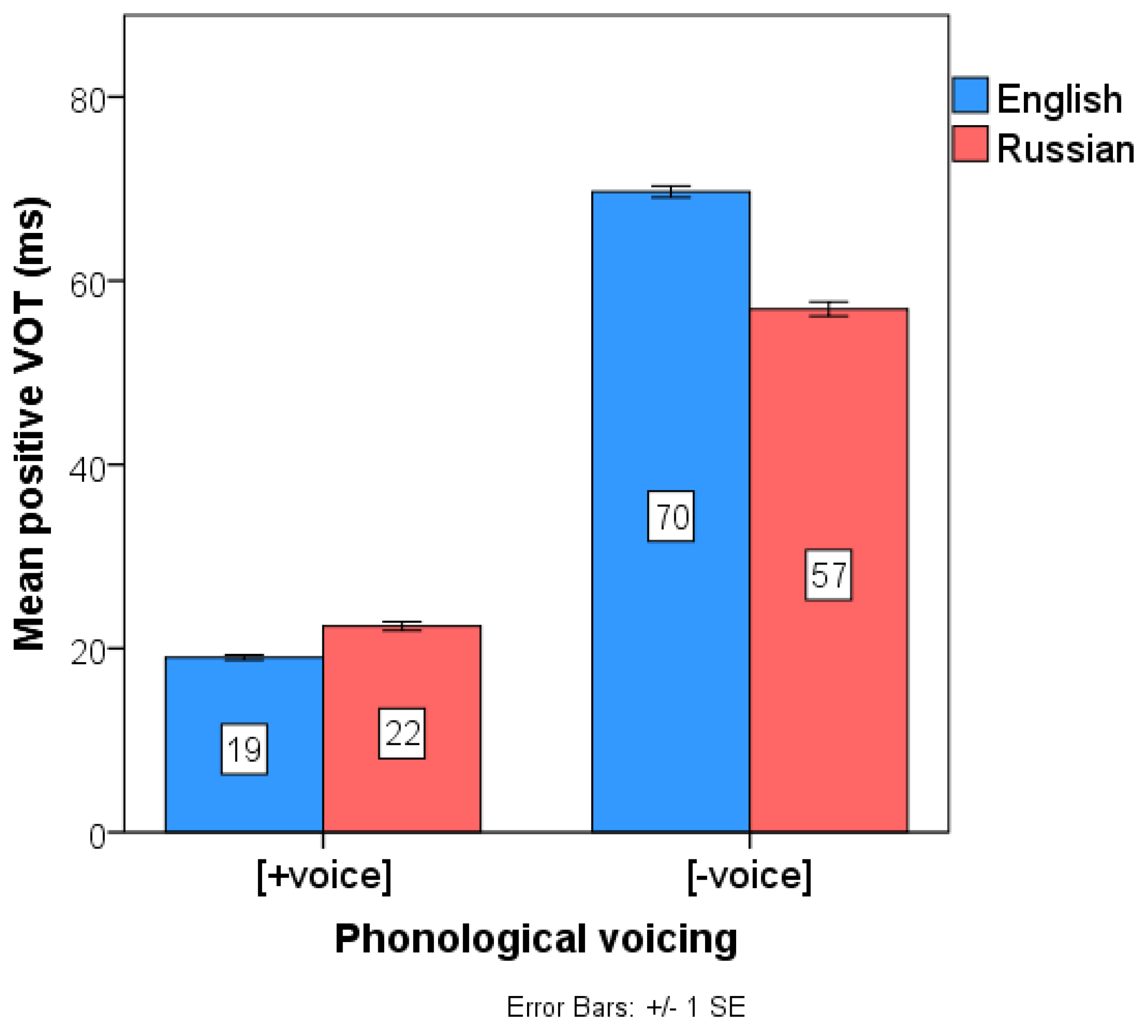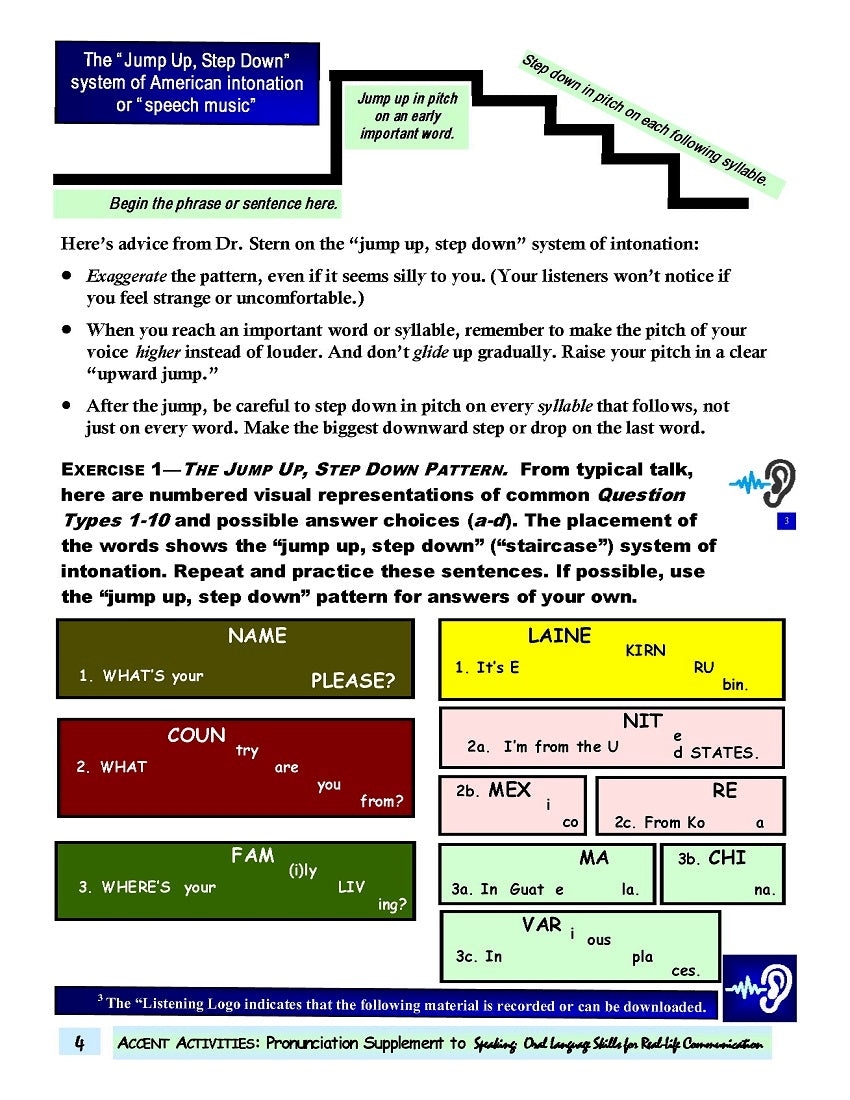E-10.01 Accent-Acquisition Principle: Native American-English
Por um escritor misterioso
Descrição
Acquire a Clear Native-Sounding Accent. Produce comprehensible oral English. Clear speech, with Phrase & Sentence Focus, intentional Rhythm, and Intonation of the “Step System of American Speech Music,” put forward by “accent coaches” for actors, public speakers, and others. Explanation of the system—visual practice.
Description: This pronunciation supplement addresses the crucial aspects of accent acquisition that contribute to clear speech. By focusing on phrase and sentence focus, rhythm, timing, and intonation, learners can improve their overall oral communication and sound more native-like. The methodical Step System of American Speech Music offers a structured approach to accent acquisition, with engaging exercises and visual notations for effective learning. Key Components: 12-page booklet covering pages 1 to 12. Visual notation guide using CAPITAL LETTERS, ÷ Vertical Lines÷, spacing, and arrows to indicate emphasis, pausing, timing, and intonation. Explanation of the Step System of American English and its significance for clear speech. Ten patterned Speaker A & B Exchanges on five social conversation topics. Engaging exercises to help learners practice and internalize accent acquisition principles. Pages: 12 pages Who They're For: Intermediate and beyond American-English teachers seeking to enhance their pronunciation instruction techniques. Helpers and tutors assisting learners in acquiring a native-sounding American English accent. Intermediate and advanced learners aiming to improve their oral communication skills and accent. Why It’s Useful: Most Audio & Text materials intended to produce comprehensible oral English focus on its elements one by one: production of its vowel & consonant sounds, syllable-stress, linking, pausing, and the like. The features that contribute most to clear speech, however, tend to be Phrase & Sentence Focus, intentional Rhythm, and Intonation. These are the components of the “Step System of American Speech Music,” a methodical plan first put forward by “accent coaches” for actors, public speakers, and others who want to acquire certain ways of speaking for specific purposes. Here’s explanation of the system—with visual text practice that learners can use to get acquainted with one another. What You’ll Do: [1] Read and think about the “Step System of American English.” If there’s interest, look up its concepts in articles about products like Breaking the Accent Barrier or The Sound & Style of American English (by Dr. David Alan Stern) or on other websites. [2] Use visual notation—CAPITAL LETTERS for emphasis, ÷ Vertical Lines÷ for pausing, amount of spacing for timing, and up or down arrows for intonation—to read aloud passages on Four Basic Features of Clear Speech: Thought-Group Focus, Generally Even Rhythm, Timing & Pausing, and Intonation. In Exercise 1, practice the Jump Up, Step Down Pattern with graphic illustrations of ten groups of common Information Questions & Short Answers used in initial “small talk.” Do the same with the sentence patterns in Exercise 2: Glide Instead of Step Down. [3] The Download ends with ten patterned Speakers A & B Exchanges on five typical “Topics for Social Conversation” (Names, Background, Family & Friends, Studies & Work, Interests). Inserting your own real information, practice these as many times as you want—in order to get better acquainted with the Accent Acquisition Principle as well as one another.
Description: This pronunciation supplement addresses the crucial aspects of accent acquisition that contribute to clear speech. By focusing on phrase and sentence focus, rhythm, timing, and intonation, learners can improve their overall oral communication and sound more native-like. The methodical Step System of American Speech Music offers a structured approach to accent acquisition, with engaging exercises and visual notations for effective learning. Key Components: 12-page booklet covering pages 1 to 12. Visual notation guide using CAPITAL LETTERS, ÷ Vertical Lines÷, spacing, and arrows to indicate emphasis, pausing, timing, and intonation. Explanation of the Step System of American English and its significance for clear speech. Ten patterned Speaker A & B Exchanges on five social conversation topics. Engaging exercises to help learners practice and internalize accent acquisition principles. Pages: 12 pages Who They're For: Intermediate and beyond American-English teachers seeking to enhance their pronunciation instruction techniques. Helpers and tutors assisting learners in acquiring a native-sounding American English accent. Intermediate and advanced learners aiming to improve their oral communication skills and accent. Why It’s Useful: Most Audio & Text materials intended to produce comprehensible oral English focus on its elements one by one: production of its vowel & consonant sounds, syllable-stress, linking, pausing, and the like. The features that contribute most to clear speech, however, tend to be Phrase & Sentence Focus, intentional Rhythm, and Intonation. These are the components of the “Step System of American Speech Music,” a methodical plan first put forward by “accent coaches” for actors, public speakers, and others who want to acquire certain ways of speaking for specific purposes. Here’s explanation of the system—with visual text practice that learners can use to get acquainted with one another. What You’ll Do: [1] Read and think about the “Step System of American English.” If there’s interest, look up its concepts in articles about products like Breaking the Accent Barrier or The Sound & Style of American English (by Dr. David Alan Stern) or on other websites. [2] Use visual notation—CAPITAL LETTERS for emphasis, ÷ Vertical Lines÷ for pausing, amount of spacing for timing, and up or down arrows for intonation—to read aloud passages on Four Basic Features of Clear Speech: Thought-Group Focus, Generally Even Rhythm, Timing & Pausing, and Intonation. In Exercise 1, practice the Jump Up, Step Down Pattern with graphic illustrations of ten groups of common Information Questions & Short Answers used in initial “small talk.” Do the same with the sentence patterns in Exercise 2: Glide Instead of Step Down. [3] The Download ends with ten patterned Speakers A & B Exchanges on five typical “Topics for Social Conversation” (Names, Background, Family & Friends, Studies & Work, Interests). Inserting your own real information, practice these as many times as you want—in order to get better acquainted with the Accent Acquisition Principle as well as one another.

Effects of prosodic and lexical constraints on parsing in young children (and adults) - ScienceDirect

North Coast Journal 10-08-15 Edition by North Coast Journal - Issuu

PDF) Trajectories of English Acquisition among Foreign-born Spanish-Language Children in the United States

2010 Spring Semester Schedule.pdf - West Valley College

Languages, Free Full-Text

Loudoun Now for Dec. 7, 2023 by Loudoun Now - Issuu
Description:, This pronunciation supplement addresses the crucial aspects of accent acquisition that contribute to clear speech. By focusing on phrase

E-10.01 Get the Accent-Acquisition Principle Most Contributory to Clear (Native-Like) American-English Speech

PDF) Mapping Pitch Accents to Memory Representations in Spoken Discourse Among Chinese Learners of English: Effects of L2 Proficiency and Working Memory

Sarah Chayes - Transom

PDF) The interpretation of phonological patterns in first language acquisition

SEC Filing

PDF) The Effect of Native and Nonnative English Language Teachers on Secondary Students' Achievement in Speaking Skills
de
por adulto (o preço varia de acordo com o tamanho do grupo)







